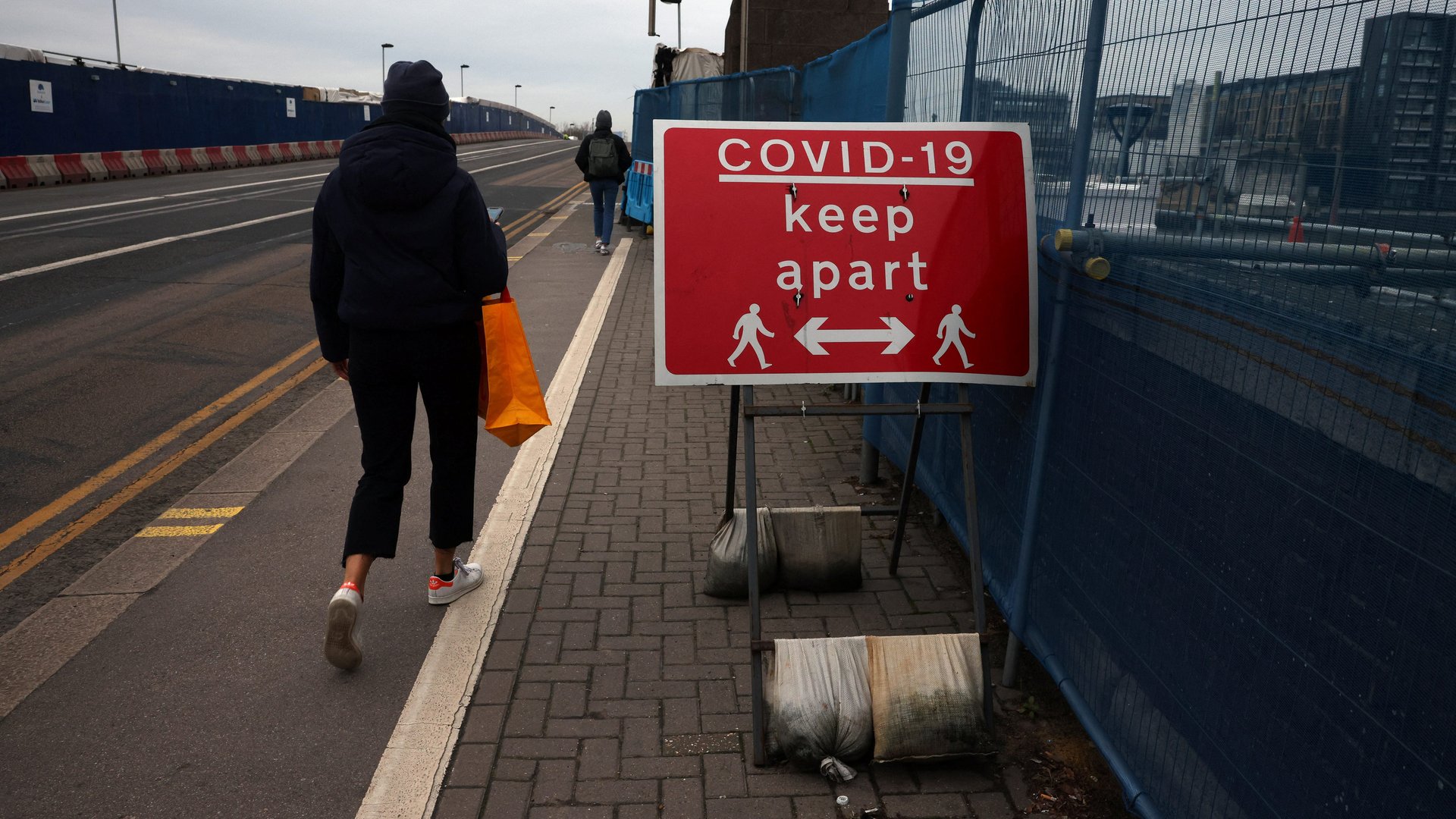As China and other countries lock down, the UK is “living with covid”
The omicron wave is breaking records for the number of covid infections around the world, and threatening global recovery from the pandemic two years after it began. But the response is not unanimous.


The omicron wave is breaking records for the number of covid infections around the world, and threatening global recovery from the pandemic two years after it began. But the response is not unanimous.
While China has locked down three cities and 20 million people, already hitting global supply chains hard, and other countries and regions—France, Quebec, Hong Kong, and Australia, among others—impose strict travel bans and vaccine mandates, the UK is relaxing restrictions and encouraging residents to “live with covid.” It’s an approach that has its critics, but recognizes the possibility that covid eventually becomes endemic, not unlike the seasonal flu.
UK doubles down on “living with covid”
The UK currently has few vaccine mandates, no pre-entry covid-test requirements for inbound travelers to England, and could even drop free testing altogether.
The UK government has been encouraging citizens to “learn to live” with the coronavirus since last summer, when prime minister Boris Johnson ditched laws requiring face masks and social distancing, only partially reinstating mask rules when omicron first hit.
Johnson’s laissez-faire policies may have been shaped by illegal drinks parties he attended with dozens of staff while the rest of the country was in strict lockdown in 2020, for which he is now under intense scrutiny and faces calls to quit. The UK government has been promoting policies that require some degree of “living with covid” from the very beginning, whether through herd immunity or delaying lockdowns over fears of “behavioral fatigue.”
“That’s all good and fine if you manage to live, but there are people who die,” Danielle Ompad, an associate professor of epidemiology at New York University’s School of Global Public Health, says of the concept being pushed by British officials. She noted that while omicron cases appear to be less severe, particularly in vaccinated people, the virus is also more infectious, meaning it still has the potential to overwhelm health systems.
The UK government has had to build temporary hospitals, as well as enlist British troops, to help deal with this most recent surge, suggesting that it is not yet ready to live with covid. But the principle is in place, and makes the UK something of an outlier among most developed nations—for now, anyway.
When does the pandemic become endemic?
The world is weary of coronavirus lockdowns, and other countries are considering similar approaches to that of the UK. Spain’s prime minister Pedro Sanchez said this week he plans to ask European officials to treat covid as a more endemic illness in light of declining covid death rates in his own country.
Ompad says it’s hard to tell when the covid-19 pandemic will become endemic, meaning the virus will continue to circulate as people gradually–hopefully—gain more immunity from vaccines and natural infections. “The last major pandemic of this scale was an influenza virus, and it was in a world that wasn’t as globalized as ours is now. Even if something is endemic, you can still have seasonal changes, and outbreaks.”
One thing seems certain, Ompad adds: If people don’t “do the bare minimum” by getting vaccinated for covid-19 and wearing face masks, additional lockdowns seem likely, and will continue to make it difficult to live alongside the virus.